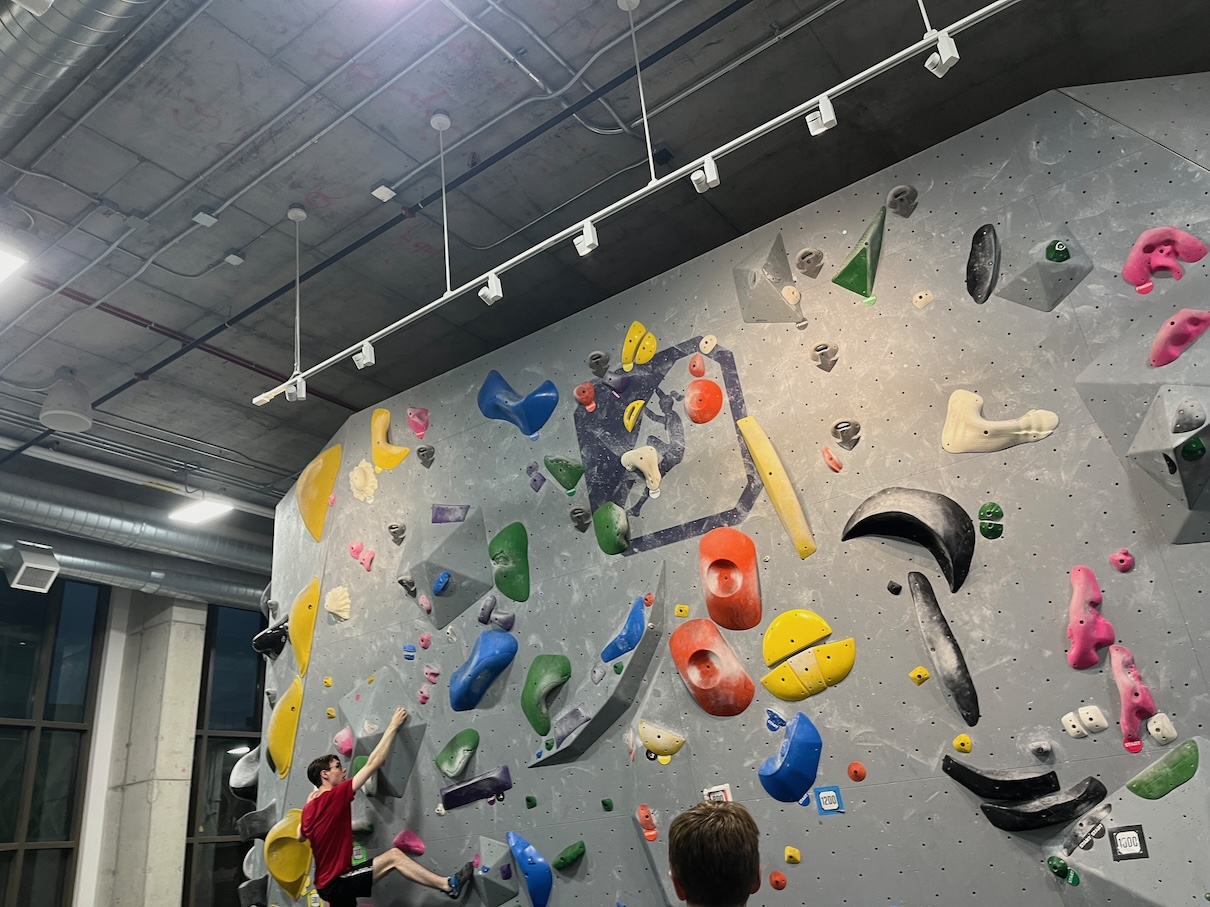Let the foot slip
Published December 30, 2024
I want to preface by saying I feel stupid writing life lessons. I haven't lived very long, and anything I can write about seems obvious to me (of course it would). And also I cannot live your life for you — I didn't understand most advice until I was in a place to be able to give it myself i.e. I usually did not follow it until too late, learning the hard way. Oh well.
Anyway, I've been rock climbing for about 6 months now. The last time I did something physical consistently was some lifting in high school, so it's been about 6 years. It's really exciting learning what your body can do. I can do four pullups when I could do none before, I can climb a few V4s, someone recently asked me to show them a route, etc. Socrates was right.
Something I noticed is that a lot of climbing is about trusting your own body. "trust the feet" to hold onto a tiny ledge, believing in your own ability to maintain a one-handed hold for half a second so you can get the next hold. This is fine and all, but what really surprised me is how to build this trust. Trust is not declarative like "I pronounce you man and wife", it can only be conveyed by testing it, finding the boundary. On many climbing setups, I felt like my feet were not gonna hold, but I realized that I'm careful on average, so it's about 50-50 when I think I can't hold it. Most of the time I think I'll fall, I just try it anyway and often I'll finish a tricky climb.
The other side is people who never fall. Sometimes I'm watching someone, cheering them on internally; they reach a precipice, look around and up and down, fingers release and they jump off thinking they could never have made it. Sometimes they're right. Sometimes they're old, and know they can't afford to slip. But they will not grow. This is the cost.
Anyone else feel like this is the equivalent of a hamster wheel for humans? Just me??

Lots of real things act like this. Alexey rails against the NIH for only funding sure-thing research, and I agree; it makes for boring science when everyone knows the results before the work is done, wasting effort, money and time creating ZERO entropy. Research questions should be kinda 50-50 on whether they'll work— at least the results will be interesting. Realizing you can ask for stuff is like this too — at least some of your asks should be rejected. You should aim to miss ~10% of your flights to minimize airport time. You will not improve your ELO by beating up kids (at chess) or make money by taking sure bets. Returns are made of risk.
Another advantage of letting the foot slip is that you learn how to fall. Falling is inevitable, and practicing unintentional falling allows you to recover gracefully. If you miss a flight, they'll often rebook you for free (even though it's your fault??). A failed experiment generates results which can be another piece of a bigger puzzle. A rejected ask is still a connection, and shows you a way to get better. A loss in chess lets you review your weaknesses, or learn their strengths. An attempt to write life advice that spells out too many details when the reader can infer for themselves the point of "learning to fall" applied to the rest of the examples can still help the readers who can't figure how that applies.
Ok sorry this is too long, you probably get it. Climbing is life, so the lessons are the same. Gotta figure out where the feet slip to figure out when they won't. And gotta figure out when YOU believe the feet are gonna slip and when they aren't, and when you're right and wrong, to figure out when to just send it anyway.